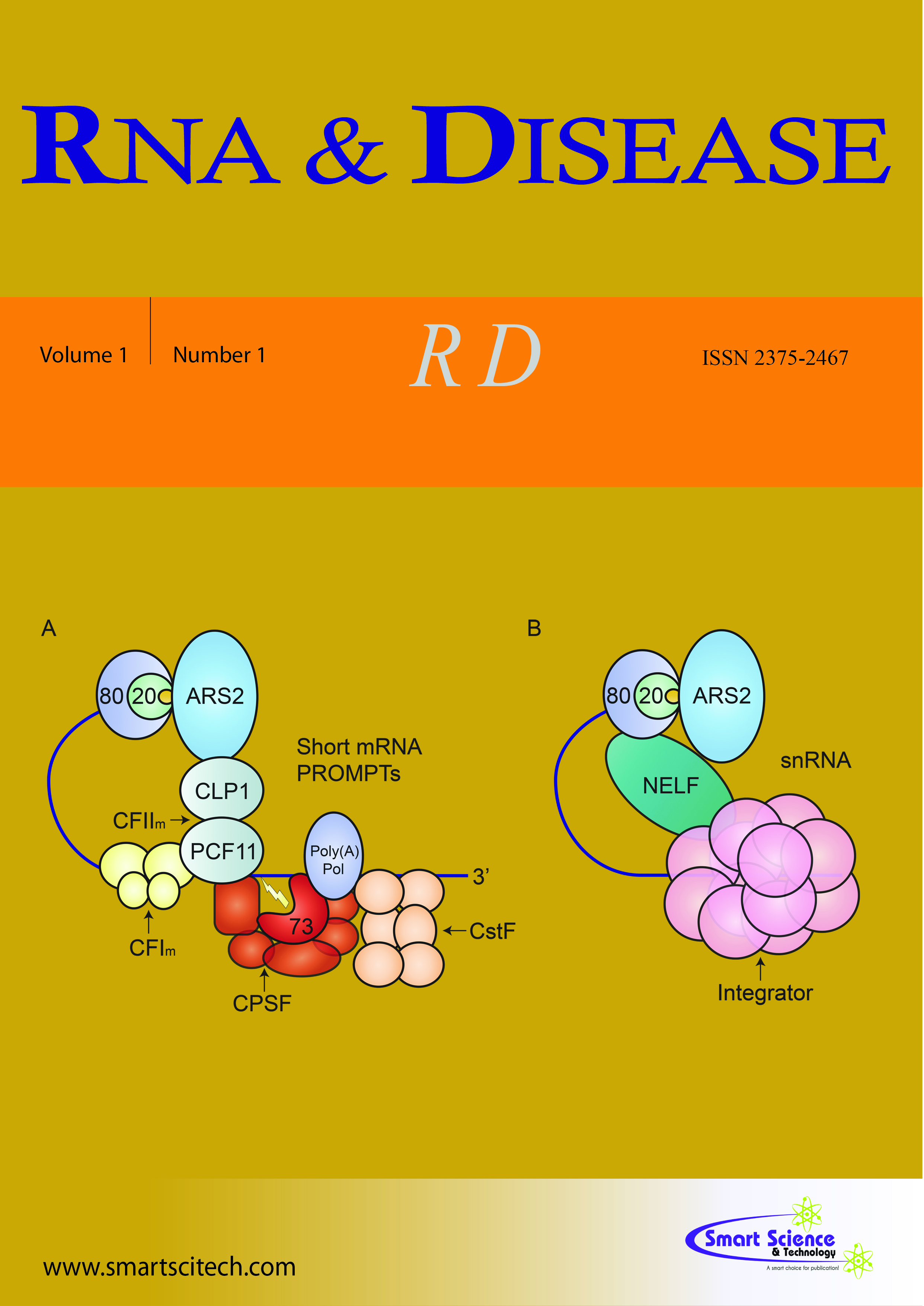microRNA global expression analysis and genomic profiling of the camptothecin-resistant T-ALL derived cell line CPT-K5
DOI: 10.14800/rd.441
Abstract
The clinical use of the camptothecin (CPT) derivatives, topotecan and irinotecan, has had a significant impact on cancer therapy. However, acquired clinical resistance to these drugs is common, which greatly hampers their clinical efficacy. MicroRNAs (miRNAs) is an exciting novel class of endogenous non-coding RNAs that negatively regulate gene expression of up to 50% of the protein-coding genes at the post-translational level. Abnormal expression of miRNAs is associated with pathogenesis of cancer and is also implicated in anticancer drug resistance phenotypes. We used global expression analysis to examine for differential miRNA expression between the camptothecin-resistant cell line CPT-K5 and its parental CPT-sensitive RPMI-8402. In the CPT-K5 cell line 18 miRNAs were deregulated. Fifteen of these were down-regulated and three were up-regulated. The miRNA-193a-3p, miR-130a-3p, and miR-29c-3p were the most down-regulated miRNAs at 205.9-fold, 33.9-fold and 5.5-fold, respectively, while the miRNA let-7i-5p was the most up-regulated at 3.9-fold. We used subtraction BAC-based array CGH analysis to examine for genomic copy number changes. Only for the three most down-regulated miRNAs a positive correlation was found with genomic loss of their chromosomal regions in which they are encoded. Potential functional targets of the differentially expressed miRNAs were examined by searching the miRBase and miRTarBase databases. Recurrent KEGG pathways that theoretically could be affected by the deregulated miRNAs are lysine degradation, cell cycle, PI3K-Akt-, ERbB- and p53- signaling pathways. We show that the intracellular levels of several miRNAs are significantly deregulated upon acquisition of CPT resistance in the T-ALL derived cell line CPT-K5, and that genomic copy number changes is not a major cause of deregulation. In addition, the most deregulated miRNAs in our study have previously been described to be involved in various types of chemotherapeutic resistance, including the chemotherapeutics CPT, gefitinib and cisplatin in other cancer and cell types. Our study adds to the current knowledge of the mechanisms of acquired CPT resistance. Specific miRNAs may prove to be future targets to reverse or inhibit development of CPT resistance thereby providing means for a more effective treatment.












